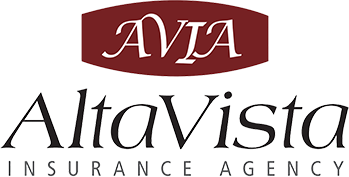3 Things Home Buyers Need to Know About Insurance
Before purchasing a home there many variables to consider. One thing you want to be sure about is your protection for your assets. Here are a few things for first-time home buyers to consider when they reach the insurance inquiry stage in their real estate purchase.
1) Compare multiple insurance companies
Compare coverage, price and financial stability. You are not required to buy from a particular insurance company, however you want an insurance company that is stable and responsive when handling claims. Shop for value, not price. Customer service and ease of doing business are key when selecting an insurance company that is right for you.
Your mortgage lender can, and probably will, require you to have homeowners insurance.You aren’t required to buy from a particular insurance company. Instead, compare coverage, price and customer reviews. Be sure you get the right type and amount of coverage. Shop for value, not necessarily rock-bottom price. Since you’ll mainly deal with insurance companies during times of disaster, make sure the company you choose has great customer service reviews.
Home insurance is not as hotly price-competitive as auto insurance, but you can still save from hundreds to more than $1,000 a year in premiums by shopping around. About 9 percent of our survey respondents had switched insurers in the previous three years, mostly because they got a better price from their new carrier. And those who switched for a better price were just as satisfied with their later claim payments as those who stayed put. Residents of California, Florida, New Jersey, New York, Texas, and other states whose insurance departments publish rate comparisons for standardized coverage can zero in on the lowest-priced insurers and then contact them for custom quotes. If your state doesn’t offer such guidance, contact an independent agent who sells insurance from multiple carriers.
2) Set up your payment out of Escrow, and use an Impound Account
If you’re like most homeowners, you’ll tack monthly insurance payments onto your mortgage check. The lender will pay your insurance premiums (usually your property taxes, too) out of your escrow account. Lenders prefer this option because it lets them know your insurance premiums are being paid, and their investment is well protected. Most likely, you’ll need to pay for one year of insurance at closing. Bring information about the insurance policy you have chosen and the money to cover the first year’s premium.
3) Look at Bundling and Saving
Consider buying your homeowners and auto coverage from the same company for as much as a 30 percent savings. Discounts are also available if you add more policies, like a motorcycle, watercraft, or personal umbrella. If you experience a significant loss, like a fire or storm, that is covered by your homeowner policy and have other policies that are affected, like an auto or motorcycle, the carrier may waive all deductibles after the home policy deductible is paid. Contact me and we can conduct a needs based analysis to identify your possible exposures and ways you can maximize your insurance protection while reducing your out of pocket expenses.
Purchasing a new home in California? Click here to get more information!



































